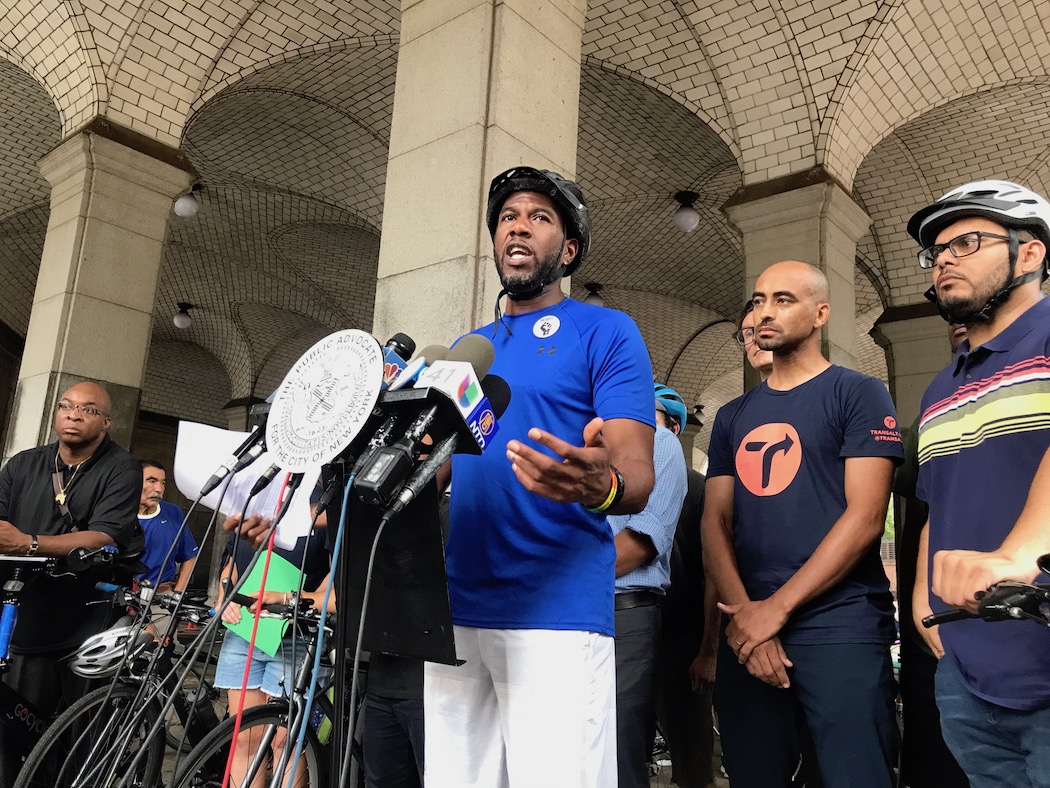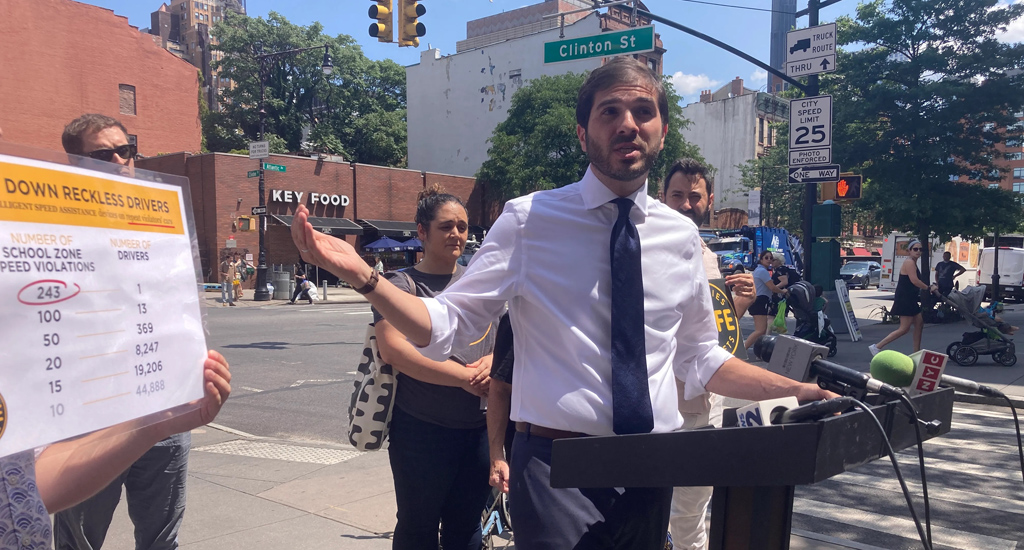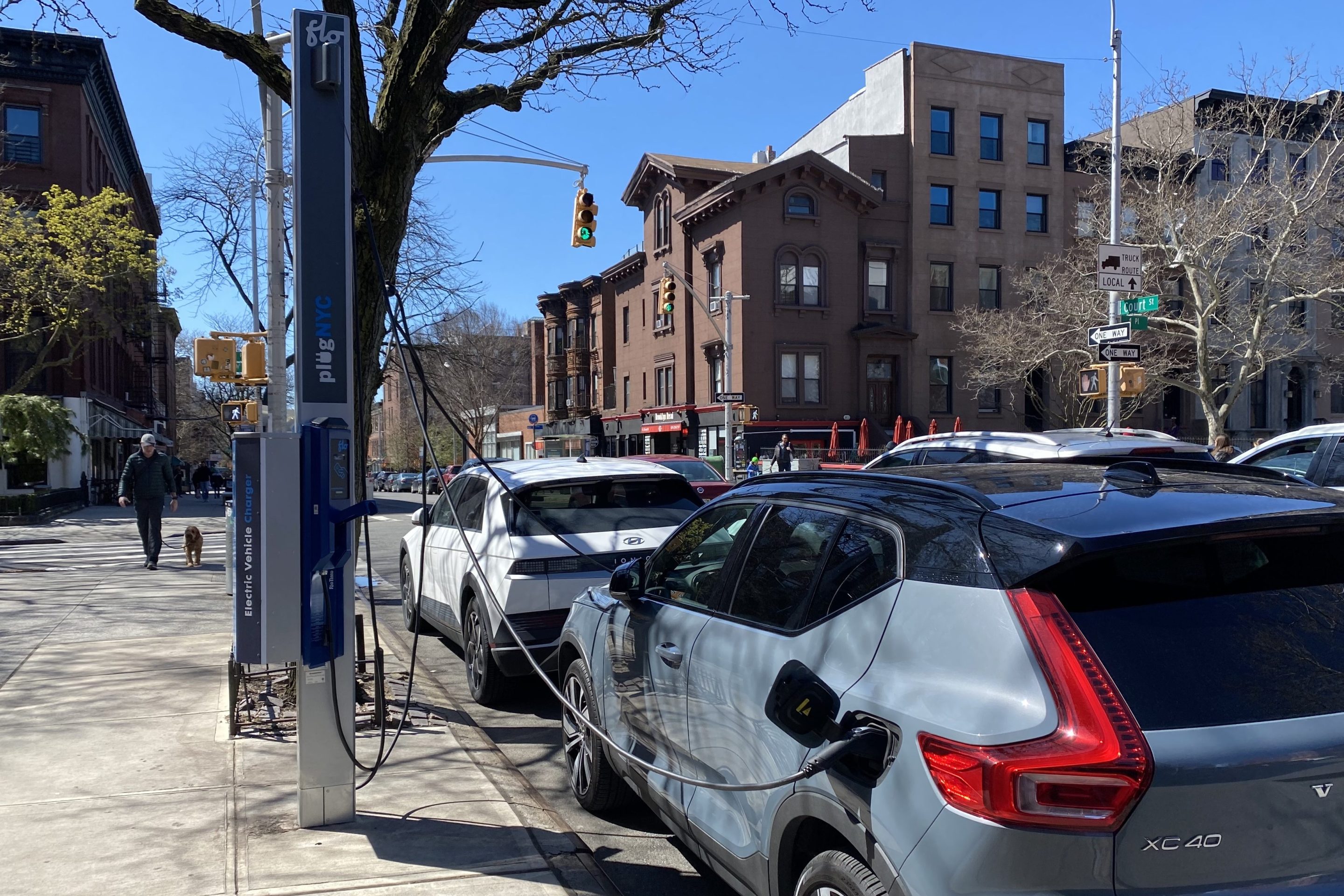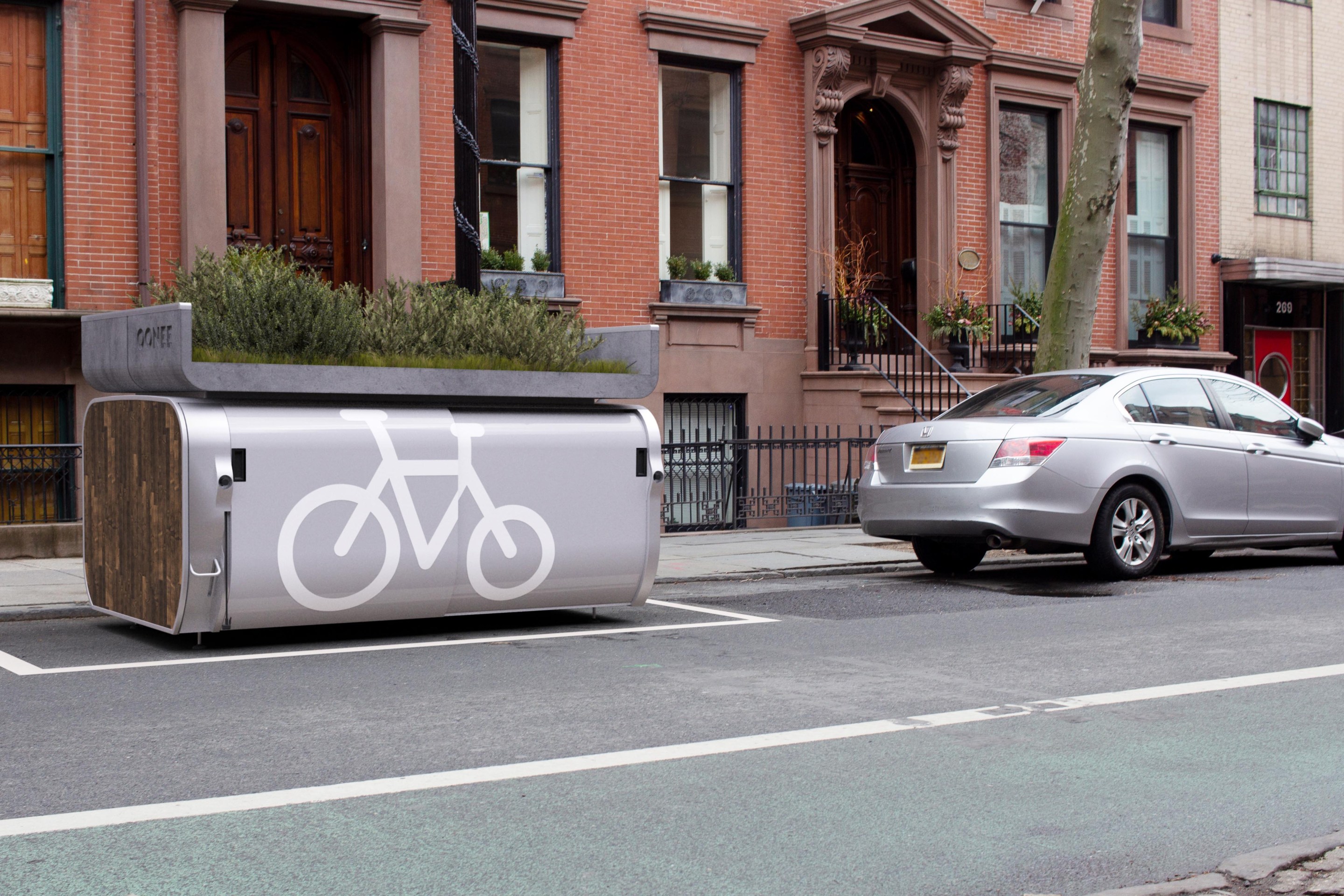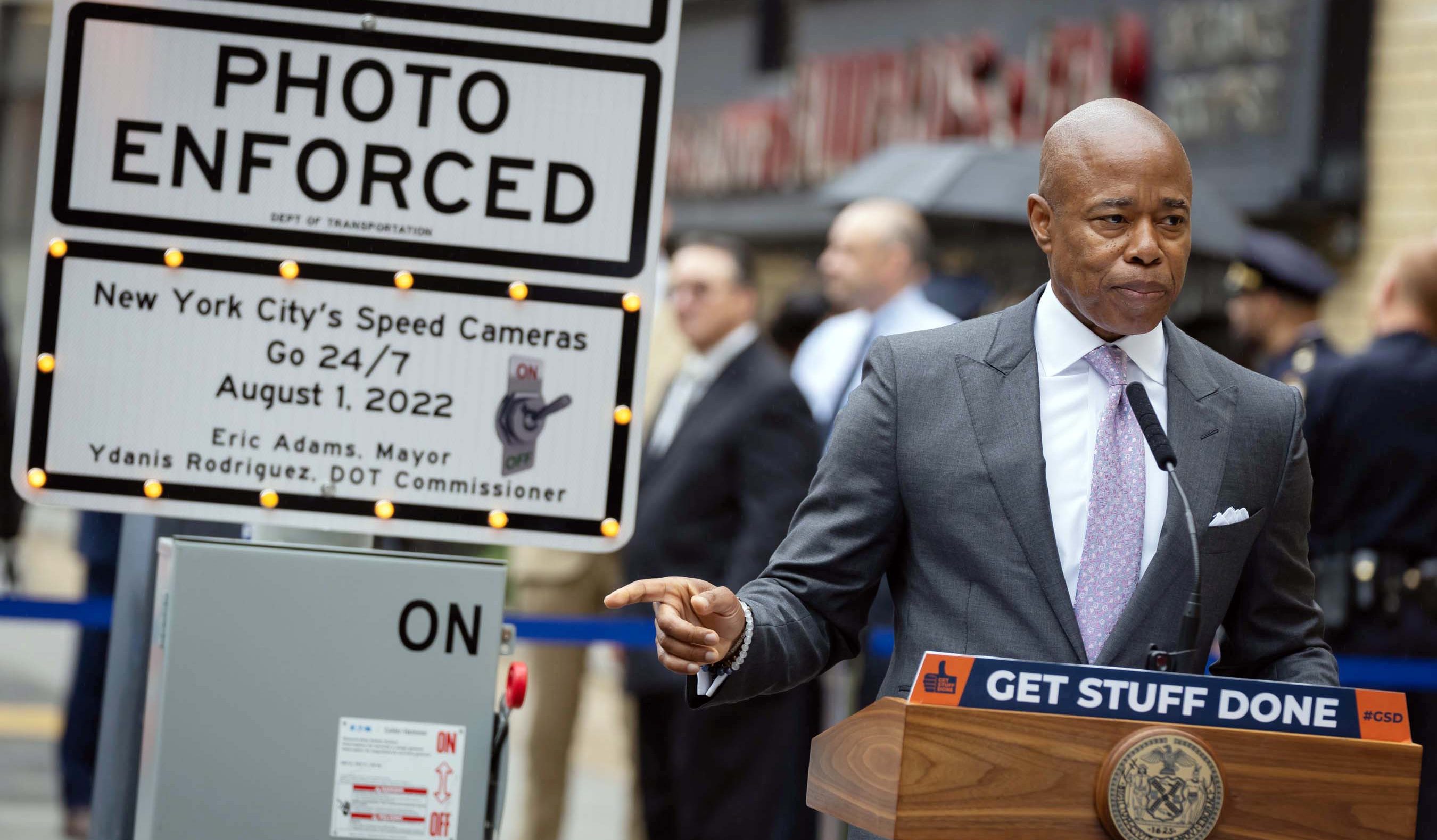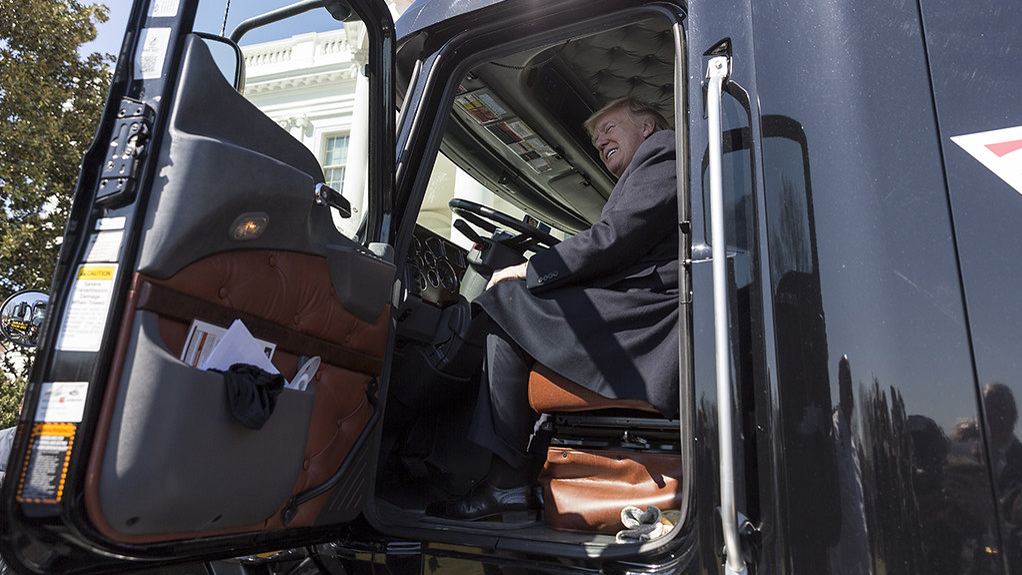Another day, another city leader undercuts his own case for safe streets.
On Tuesday, Public Advocate Jumaane Williams correctly framed the discussion of street safety in the language of social justice, noting that drivers are the most protected class on city roads and calling for the city to move faster and build more protected bike lanes.
"The fact of the matter is, on the road, the driver behind the multi-ton metal is in the most privileged position," Williams said at the Municipal Building after a bike ride with cycling advocates over the Brooklyn Bridge.
But Williams ended the press conference by defending the process by which community boards gum up the works and slow down street improvements. Asked how the city could put in more protected bike lanes, the public advocate said the emergency situation needed more community board meetings.
"We should engage communities more in the discussion. It's made worse when they feel like they're not part of the discussion about these things. I want to make sure [community boards] feel their voice is heard. What I hear from them, is it's not about length, but they feel their concerns fall on deaf ears," Williams said.
The public advocate used the example of one of his constituents, who complained to him that the city put a bus stop in front of his house despite what the constituent said was a good stop nearby. Leaving aside the fact that many homes in New York have bus stops in front of them, Williams suggested that these are the complaints that fall on deaf ears when the Department of Transportation brings street safety plans to community boards.
The reality of the situation though, is that community boards are just as likely to delay all manner of street safety plans and bus lane proposals simply because they want to keep their parking as they are to bring up "small tweaks." In cases across the city, community boards have rejected life-saving street redesigns. Their members have even suggested that pedestrians deserve to be hit, or that bike lanes are just for "illegals."
But some community board members have even agreed with calls from City Council Member Antonio Reynoso that they shouldn't get an up or down vote on bike lanes, given that the boards aren't made up of traffic professionals. A painstaking six-month community outreach effort by the DOT didn't keep Brooklyn's Community Board 10 from voting against a proposal for painted bike lanes that would not have even reduced parking (the board's fear was, apparently, more residents might start using the bike lanes, encouraging DOT to add even more).
DOT efforts to improve safety on the truly deadly Church Avenue have been undercut by parking concerns in both Community Boards 12 and 14. Despite this, Williams tweeted after his press conference that it's possible to install more protected bike lanes while also listening to community boards.
Williams managed to say many of the right things on Tuesday — even pointing out that as a driver (and a very bad one!), he knows he's the most secure and protected road user, so he asked his fellow four-wheelers to understand that roads belonged to everyone.
"The fact of the matter is drivers, coming from the privileged position, we often think the only people who should be on the road are other car drivers."
And when a reporter made the fact-free claim that the city has plenty of laws to hold reckless drivers accountable (the DMV doesn't even keep records of the most dangerous drivers in New York) and asked about enforcement against "reckless cyclists," Williams said, "You don't put enforcement on the least-privileged who are dying."
And Williams, reflecting on his short ride to his office, referred to blocked bike lanes, bike lanes that aren't painted well, and drivers who don't paying attention. He even said that he believes "our infrastructure is too heavily focused on getting cars where they need to go, without having the same or even more emphasis on people who are riding bicycles."
But in backing parochial institutions that are frequently concerned with only their slice of real estate, Williams undercut his own case to fix what he correctly identified as an emergency.
Williams's mismatched rhetoric is part of a trend of city officials who can't seem to get out of their own way on street safety. On Monday, City Council Speaker Corey Johnson went back and forth on his support for the 14th Street Busway, despite his grandiose promises to "break the car culture." And it came weeks after a press conference where Mayor de Blasio unveiled a bike safety plan and then defended the deadly practice of allowing drivers to make a quick stop in the bike lane — a practice derided by all as "the de Blasio stop."
As several advocates have pointed out, you can't declare something a "crisis," a culture that needs to be "broken," or a system of unfair privileges — and then back off from fixing that problem with every tool in the toolbox. Or defer to community boards.
